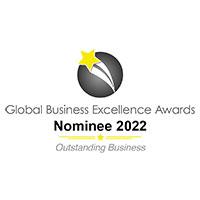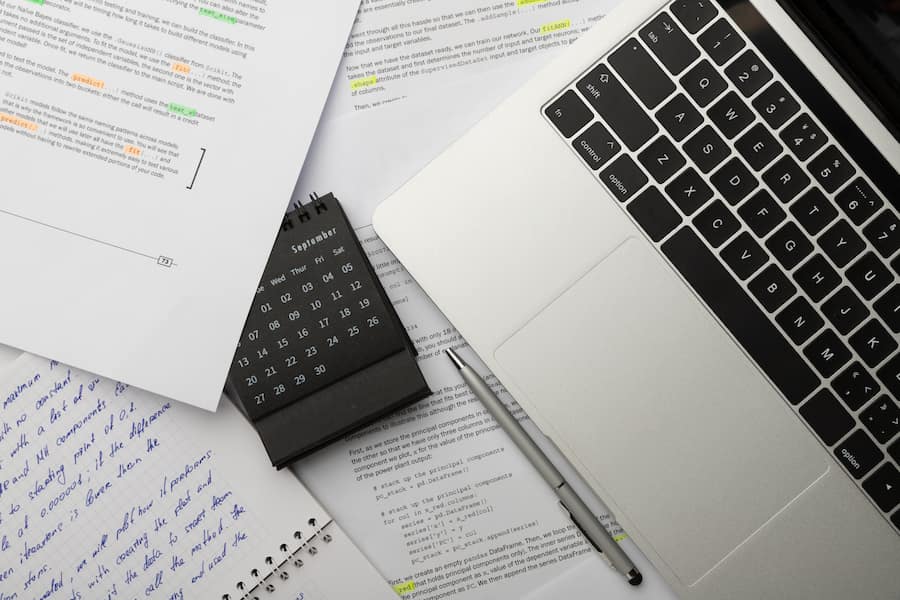Bank Account Opening in the USA
When it comes to international business and personal finance, opening a bank account is the first crucial step. Yet, in today’s world, where digital assets and blockchain technology are redefining the way we talk about money, why do businesses and individuals still face a major hurdle trying to access traditional financial tools? Indeed, for many, opening a bank account in the US is one of the most critical and complex challenges as they navigate a system that often views the innovative models with caution.
But what if you had a clear, concise map to guide you? Whether you’re a burgeoning startup or an established firm planning to open an account from abroad, we’ll walk you through everything you need to know, from the step-by-step roadmap for opening a financial record to the essential documentation and different types of accounts available. Get ready to position your business for long-term growth and stability in today’s American market with ease and clarity.
- Why Open a US Bank Account?
- Who Can Open a Bank Account in the US?
- Steps to Open a US Bank Account from Abroad
- Requirements for Foreigners to Open a US Bank Account
- Types of Bank Accounts Available in the USA
- Common Challenges When Opening a US Bank Account as a Foreigner
- Ready to Open Your US Bank Account? Start Now!

Why Open a US Bank Account?
For businesses and individuals seeking to operate in the crypto and digital-asset space, opening a US bank account isn’t just about convenience. Rather, it’s about legitimacy, operational efficiency, and global reach. Here’s what you get as you open a bank account in USA:
1. Trust and legitimacy
First and foremost, opening a US bank account provides a critical layer of credibility for your business operations. How so? It signals to the investors, regulators, and partners that your company is compliant and verified within the traditional financial framework. This, in turn, will significantly de-risk your future operations in the eyes of stakeholders.
2. Access to key services
Next, once you open US Bank account, you will have access to services crucial for scaling your company. Those include everything from integrating with major payment processors like PayPal or Stripe to getting approval for business loans and other financial options. Moreover, keep in mind that a vast majority of today’s fintech tools and services are designed specifically for US-based financial records.
3. Operational efficiency
With your banking operations taken care of, handling the day-to-day business becomes seamless. In particular, you pay for services from US vendors, manage your expenses, and handle payroll all without relying on often expensive and complicated international transfers. Even such small tasks as settling invoices and paying for cloud hosting get easier than ever before.
4. Global reach and market access
As you probably know, the US market has remained one of the largest and most influential globally for decades. That’s where using a local account becomes especially important, as it allows you to transact directly with US clients and partners, eliminating foreign transaction fees and issues with currency conversion. Moreover, both US citizens and foreigners can open an American financial account, which is a huge advantage for businesses earning income in USD. Overall, launching operations from a US account is your key to tapping into the massive consumer and investor base.

Who Can Open a Bank Account in the US?
So, who can open and operate a US bank account? The short answer: almost anyone, but the procedure and requirements vastly differ depending on your residency status. While US citizens and legal residents have a more straightforward path to opening their accounts, non-residents and foreign companies face more hurdles due to the higher regulatory scrutiny related to this process. With thorough planning and professional assistance, you, as a foreigner, can open bank account in the US efficiently and hassle-free. Here is a breakdown of who can open and operate an American bank account:
1. US citizens and legal residents
For this category of applicants, the procedure is typically simple. All you need for that is your Social Security Number (SSN), a government-issued photo ID, which can also be a driver’s license, and your US address. Most of the banks also allow you to complete the application form online within minutes at any convenient time.
2. Foreign non-residents
Opening a US bank account as a foreigner often requires an in-person appointment at your selected bank branch. The most important things you need for your visit are a US mailing address and an Individual Taxpayer Identification Number (ITIN) or an Employer Identification Number (EIN) in case you apply for a business financial record. Bear in mind that the list of requirements differs among banks, and it should be taken into account as you proceed with collecting your documents and overall planning the application process.
3. Foreign businesses and crypto companies
The third, and most challenging, category of applicants who can open an account is foreign companies and crypto projects. That’s because the US banks typically require detailed due diligence to ensure your business complies with Anti-Money Laundering (AML) and Know Your Customer (KYC) policies. The list of detailed corporate documentation is also typically extensive.
Our awards






Steps to Open a US Bank Account from Abroad
Decided to open a bank account in the US? Great choice, now it is time to proceed with the essential practical steps of this process. Here is what your financial record opening from abroad will look like:
1. Choose the right bank
Begin by selecting the right bank. Why does it matter? Not all banks in the United States apply the same account-opening requirements, especially when it comes to non-resident and crypto-friendly accounts. Take a closer look at international banks with a US presence, like Citibank or HSBC. Those have dedicated divisions to assist foreign applicants. We’ll help you make the most informed decision at this step of your business bank account opening journey, which will align with your goals and business opportunities.
2. Collect the necessary documents
Now, it’s time to collect and polish a comprehensive set of documents. Here is what the standard documentation for account opening includes for foreigners:
- A valid passport;
- A secondary form of government-issued ID upon request;
- Corporate documents, if you’re opening a business account;
- Documents proving your company’s ownership structure;
- Taxpayer identification number, which is an Employer Identification Number (EIN) for companies and an Individual Taxpayer Identification Number (ITIN) for individuals;
- Proof of a US address.
3. Confirm your business’s compliance
Lastly, make sure you also have the mandatory documentation to demonstrate your company’s compliance and financial integrity. Compared to companies involved in traditional finance, crypto ventures need to proactively address the bank’s concerns about risks associated with digital assets. That’s what documentation you’ll need to provide to ensure your banking process goes smoothly:l
- A detailed business plan;
- Source of funds;
- Internal Know Your Customer (KYC) policies;
- Compliance and Anti-Money Laundering (AML) protocols.
Following these key steps will allow you to transform a potentially daunting account-opening process into a manageable one. Meanwhile, with our legal assistance and planning, the entire procedure will go hassle-free from the very beginning. We’ll help you prepare the complete documentation, internal policies, communicate with the bank, and secure your financial operations from abroad.
Reviews

Requirements for Foreigners to Open a US Bank Account
Wondering how to open a bank account in the US and meet all the regulatory requirements? The key is providing the right set of official documentation. While specific rules can vary between various banks, the core paperwork you will need falls into three main categories: identification, proof of address, and a US taxpayer identification number.
Here is what you need to know before opening a financial record for your company in the US:
1. Personal and business identification
You will need to verify your identity and prove that your business is a legitimate legal entity. For that, you must provide the following documents:
- A valid passport as the primary form of identification.
- Secondary ID, if it is required by the bank. It can be a national ID or, for instance, a foreign driver’s license.
- Company formation documents, including the Articles of Incorporation, which prove your company is legally registered in the United States.
2. Proof of address
Next, banks need to confirm your physical address. It can be a challenging task for non-residents, but here are a few options on how you can proceed with this step:
- A residential address;
- A business office address;
- A virtual office address, which is permitted by a few banks.
To prove your address, you need to provide either a recent utility bill or a lease agreement. However, certain banks might accept a foreign address if it is accompanied by proper supporting documents.
3. Taxpayer identification number
This is a critical requirement that can be a challenge to many foreigners, since they don’t have a Social Security Number (SSN), which is the standard for US citizens. However, SSN is not the only option, and you can provide one of the following:
- Individual taxpayer identification number (ITIN): Applies to individuals who don’t have an SSN but need a tax ID. To get your ITIN, you can apply with the IRS using Form W-7.
- Employer identification number (EIN): It is a mandatory tax ID for all US businesses. As a foreigner, you can apply for an EIN for your US legal entity by submitting Form SS-4 to the IRS via mail. Keep in mind that the EIN is the most crucial document for opening a corporate bank account in the United States.
Types of Bank Accounts Available in the USA
The US banking system provides a variety of accounts designed for specific financial purposes. However, the right combination of accounts will significantly help you manage your everyday spending and grow your wealth for the future. It’s essential to understand the role of each type of financial record to build a smart financial strategy in such a progressive hub as the US.
Here is a brief overview of the major types of accounts available:
1. Checking account
- Best for frequent transactions;
- Easy access to your finances through a debit card, checks, and online transfers;
- Designed for liquidity and convenience;
- Unlimited transactions;
- Suitable for receiving direct deposits and managing cash flow.
2. Savings account
- Designed for safe and long-term money storage;
- Pays a higher interest rate, allowing your money to grow over time;
- Best for setting aside finances for a large purchase in the future;
- Limits on the number of withdrawals per month apply.
3. Money market account (MMA)
- Blends features of a savings and checking accounts;
- Designed to earn a better interest rate compared to a debit card for certain transactions;
- Best for medium-term savings goals.
Common Challenges When Opening a US Bank Account as a Foreigner
While opening a US bank account as a foreigner is crucial for expanding and securing your business operations, it often involves certain obstacles. The US banking system is primarily designed for domestic customers and guided by strict regulatory frameworks like AML and KYC. All this creates a series of challenges for foreigners planning to open a US bank account from abroad:
1. The dilemma with the physical presence
A vast majority of big-name US banks require an in-person visit to a branch for opening a financial record. It is often the biggest hurdle for foreigners living abroad, as it implies a costly and time-consuming trip to the United States to sign a few documents and verify their identity.

2. Challenge with the proof of US address
A physical US address is a mandatory step in the account-opening process, which, again, presents another challenge for non-residents. This makes many foreigners rely on virtual office space services, which, however, can be perceived with suspicion by the compliance departments in the US.
3. Lack of a Social Security Number (SSN)
The SSN is the backbone of financial identification in the United States. Without the SSN, most American banks will not let you proceed with your account application. On the one hand, an ITIN or EIN can serve as a suitable alternative for tax purposes. On the other hand, though, not all banks are equally familiar with these identifiers or do not treat ITIN and EIN as trustworthy substitutes for the SSN, which can potentially lead to delays in your account-opening procedure.
4. High regulatory scrutiny
At last, the extensive due diligence applies to foreign clients, and this scrutiny is even more intense for crypto businesses. That’s because the US banks tend to perceive digital assets as a high-risk area for money laundering and fraud. Therefore, as you plan to open an account for your company, be ready for a barrage of questions about your source of funds, business model, and internal compliance policies.
Ready to Open Your US Bank Account? Start Now!
Wondering how a foreigner can open US bank account? We’re here to help you navigate the complexities of this process and simplify your banking experience. Now that you have a clear understanding of the US banking landscape and each step of the account-opening process, it’s time to begin your journey with confidence, clarity, and smart planning. At Fintech Harbor Consulting Ltd, we firmly believe that the path to securing your US bank operations for the foreign business does not have to be a confusing one.
Worried about the common hurdles of documentation and compliance requirements? We’re here to guide you through forming a US legal entity, obtaining your EIN, preparing a full set of corporate documents, and communicating with the bank on your behalf. Ready to get started? Contact us today and unlock your project’s full potential in the prestigious US market.
FAQ
Can I open a US bank account as a foreigner?
Yes, US banks allow foreign individuals and businesses to open bank accounts from abroad. Yet, the requirements related to this process are more complicated than for the US citizens and legal residents.
What documents are required to open a US bank account from abroad?
The list of essential documentation for foreigners planning to open a bank account in the US typically includes the following:
- Personal and business identification
First things first, you’ll need to verify your identity and confirm that your company is a legitimate legal entity. To do that, provide the following documents:
- A valid passport as the primary form of identification.
- Secondary ID, if required by the bank. This can be a national ID or, for instance, a foreign driver’s license.
- Business formation documents, including the Articles of Incorporation, which prove your company is legally registered in the United States.
2. Proof of address
To confirm your physical address, there are a few options to choose from:
- A residential address;
- A business office address;
- A virtual office address, which is permitted by a few banks.
To prove your US address, you can provide either a recent utility bill or a lease agreement. However, certain banks might accept a foreign address if it is accompanied by supporting documents.
3. Taxpayer identification number
It is a critical requirement; however, it can be a challenge for many foreigners. The standard for US citizens is a Social Security Number (SSN), which non-residents do not have. Yet, SSN is not the only option, and you can provide the following:
- Individual taxpayer identification number (ITIN): Applies to individuals who don’t have an SSN but need a tax ID. To get your ITIN, you can apply with the IRS using Form W-7.
- Employer identification number (EIN): It is a necessary tax ID for all businesses operating in the US. As a non-citizen, you can apply for an EIN for your US legal entity by submitting Form SS-4 to the IRS via mail. Keep in mind that the EIN is the most crucial document for opening a corporate bank account in the United States.
How long does it take to open a bank account in the USA?
The timeframe for opening your US bank account depends on several factors, including your circumstances, particularly whether you apply as an individual or a business entity, your access to a US taxpayer identification number, and which bank you choose for the procedure.
If you are a US citizen or a legal resident with a Social Security Number (SSN), the process is remarkably quick and can take as little as 15-20 minutes to complete. In contrast, the account-opening journey is more complex for foreigners and foreign businesses. The duration for this category of applicants is often determined by how long it takes to get their tax identification numbers and complete the bank’s due diligence. In particular, applying for the EIN from abroad by mail is commonly completed within 4 to 8 weeks or longer, depending on the IRS backlog. An alternative option for foreign businesses is to assign a representative in the US and apply by phone. In this case, you can get your EIN within just 15 minutes during business hours.
If you are a foreigner applying for a personal account, you will need to obtain an ITIN. The application by mail typically takes under 12 weeks. Finally, once you have prepared all your documents, the bank account opening process itself can be relatively quick. Namely, for online-first fintechs, the approval can be nearly instant, while for traditional banks, the procedure takes from a couple of days to several weeks. Overall, the total timeline for foreigners ranges from as little as a few weeks to several months, if you rely on mail for a tax ID.
How to ensure that your financial record opening goes as smoothly and efficiently as possible? The key is to be prepared with all your paperwork and choose a bank that is familiar with and receptive to your specific needs.
Are there any fees for opening a US bank account as a foreigner?
Planning your budget is a significant step when opening a US bank account. The associated cost structure tends to be more complex for foreigners and foreign-owned businesses than for local clients. Keep in mind that while certain accounts may advertise “no opening fees,” they often apply other costs related to maintaining the financial record and conducting transactions.
Overall, here are the most common expenses to expect:
- The initial deposit ranges from a nominal amount of around $25 to up to $1,000.
- Monthly maintenance fees vary from as little as $5 to $30 or more.
- Transaction fees apply to some business accounts. The charges apply to transactions that exceed a specific monthly limit. For instance, an account might allow for 250 free transactions monthly and charge a small fee for each transaction thereafter.
- Foreign transaction fees apply to using your US debit card abroad in a foreign currency. This fee is typically a percentage of the transaction amount, typically around 3%.
Can I manage my US bank account online from outside the United States?
Yes, in most cases, you can operate your US account online from outside the United States. Mobile and online banking options are available in almost all US banks, which makes access to your finances quick and easy. Virtual account management is essential for foreigners and international businesses that do not have a physical office space in the country.







